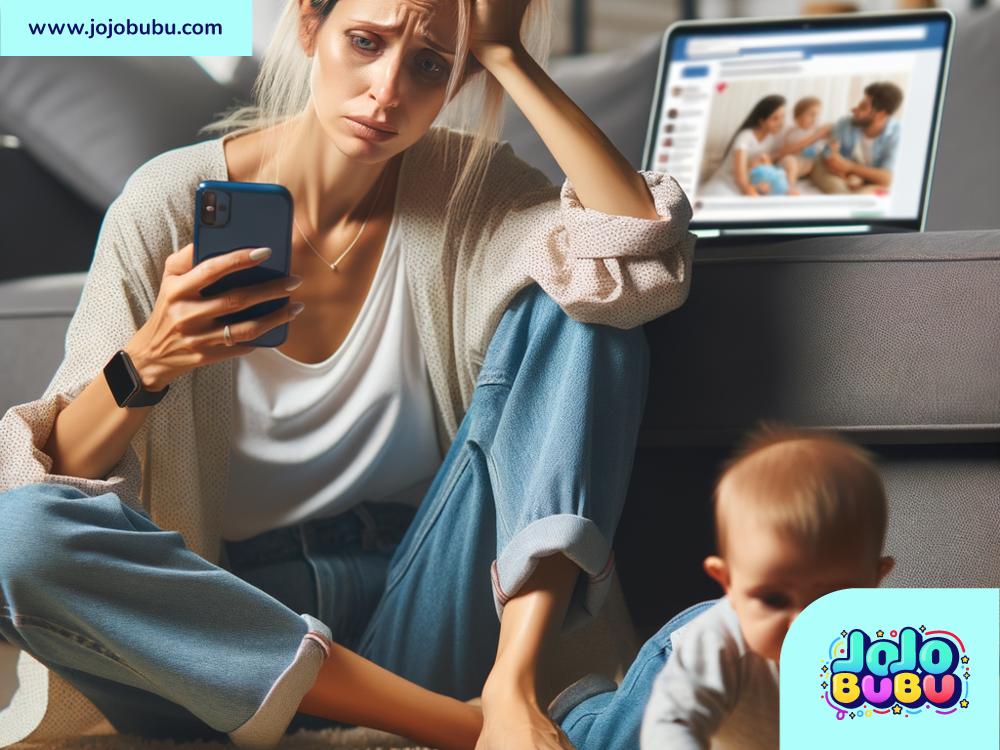The Effects of Social Media on Parent Self-Worth
Social media has become a big part of our lives. We use it to connect with friends, share moments, and learn about the world. But while social media offers many benefits, it can also affect how we see ourselves. For parents, this is especially true. Social media can impact their self-worth, which is how they feel about themselves and their value as parents.
The Perfect Parent Illusion
One of the biggest ways social media affects parents is by creating a false idea of what parenting should look like. On platforms like Instagram, TikTok, and Facebook, many parents share photos and videos of their seemingly perfect lives. Their children are smiling, their homes are spotless, and everyone looks happy. While there’s nothing wrong with sharing good moments, these posts can create pressure for other parents.
When parents scroll through their feeds and see these perfect images, they may start to compare themselves. They might wonder why their child doesn’t behave as well or why their home doesn’t look as clean. It’s easy to forget that social media only shows a small part of someone’s life—the part they choose to share. No parent’s life is perfect, but on social media, it can seem like everyone else has it all figured out.
The Impact of Comparison
Comparison is one of the main reasons social media can hurt a parent’s self-worth. When parents compare themselves to others online, they may feel like they’re failing, even if they’re doing a great job. For example, one parent might see a post about a family vacation and feel guilty for not being able to afford the same for their family. Another might see a mom or dad sharing their homemade meals and feel bad for feeding their kids takeout.
These comparisons can lead to negative thoughts like, “I’m not a good parent,” or “I’m not doing enough for my kids.” Over time, these feelings can chip away at a parent’s self-esteem. In reality, every family is different, and what works for one family may not work for another. But social media often makes parents forget this.
Unrealistic Expectations
Social media doesn’t just encourage parents to compare themselves—it also sets unrealistic expectations. Trends like “Pinterest-perfect” birthday parties or elaborate crafting projects can make parents feel like they need to go above and beyond. If they can’t keep up with these expectations, they might feel like they're failing.
Parenting is already hard work. Between taking care of children, working, and managing household tasks, many parents barely have time for themselves. Adding the pressure of meeting social media standards can make parenting even more stressful. Unrealistic expectations can make parents feel burnt out and unappreciated.
The Role of Validation
Social media also affects parent self-worth through validation. Many parents use social media to share their triumphs and funny parenting moments. While sharing can be a way to bond with others, it can also become a source of validation. Parents might post something and wait for likes, comments, or shares. If they get a lot of engagement, they may feel valued and successful. But if their post doesn’t get much attention, they might feel the opposite.
Relying on social media for validation can be harmful. It ties a parent’s sense of worth to something they can’t control—the reactions of others online. True self-worth comes from within, not from likes or approval from strangers. When parents recognize this, they can focus more on their own values and progress instead of what others think.
Positive Effects of Social Media
It’s important to note that social media isn’t all bad for parents. In fact, it can offer valuable support. There are many parenting communities online where parents can share advice, vent about challenges, and encourage one another. These spaces can help parents feel less alone and more understood. For example, a parent struggling with potty training might find tips in a parenting group that make the process easier.
Social media can also help parents celebrate their achievements. Posting about a child’s first steps or a successful school event can create pride and joy. Sharing these moments with others can strengthen connections and boost confidence, as long as parents don’t rely on it as their sole source of self-worth.
Tips to Protect Parent Self-Worth
To avoid the negative effects of social media, parents can take steps to protect their self-worth. Here are some simple tips:
- Limit screen time: Spending less time scrolling helps reduce comparison and unrealistic expectations.
- Follow realistic accounts: Look for parenting influencers who share honest stories about struggles and imperfections.
- Celebrate small wins: Focus on your own parenting successes, no matter how small they seem.
- Avoid comparison: Remind yourself that every family is unique, and social media is not reality.
- Find offline support: Spend time with friends, family, or parenting groups in real life. Face-to-face connections often feel more genuine.
Conclusion
Social media can be a helpful tool for parents, but it also has its downsides. It’s easy to fall into the trap of comparison, unrealistic expectations, and seeking validation from online strangers. These things can lower self-worth and make parents doubt their abilities. However, by using social media mindfully and focusing on their own accomplishments, parents can keep their self-esteem strong. Parenting is a journey, and no one is perfect—but every parent has something to be proud of.

